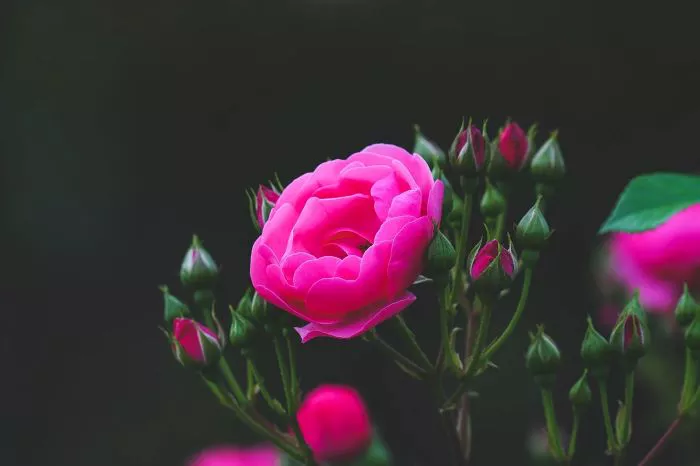Growing flowers from seeds is a rewarding experience for gardeners of all levels. Watching seeds transform into beautiful blooms is both exciting and fulfilling. However, many new gardeners wonder how long it takes for flower seeds to sprout. The answer varies based on several factors, including the type of flower, environmental conditions, and seed quality. This article provides a detailed overview of the factors that influence seed germination and offers guidance on what to expect during the sprouting process.
Understanding Seed Germination
Seed germination is the process by which a seed develops into a new plant. This process begins when a seed absorbs water, swells, and breaks through its outer shell. Germination involves several stages, including imbibition, activation of metabolic processes, and the emergence of the seedling. Each flower species has its own unique germination timeline, influenced by its biology and environmental conditions.
Factors Affecting Germination Time
Several factors can affect how long it takes for flower seeds to sprout. Understanding these factors can help gardeners create optimal conditions for germination.
Type of Flower
Different flower species have varying germination times. Some seeds may sprout within a few days, while others may take several weeks. For example, marigold seeds typically germinate within 5 to 10 days, while perennial flowers like echinacea may take 14 to 30 days or longer.
Seed Quality
The quality of the seeds plays a significant role in germination success. Fresh seeds generally have higher germination rates than older seeds. It is essential to purchase seeds from reputable suppliers and check the expiration date. Proper storage conditions also affect seed viability. Seeds stored in cool, dry places tend to remain viable longer.
Soil Conditions
The type of soil used for planting can impact germination time. Well-draining soil that retains moisture is ideal for most flower seeds. Heavy, compacted soils can hinder seed emergence. It is also important to ensure that the soil is free of weeds and pests that may compete with the seedlings.
Moisture Levels
Seeds require consistent moisture to germinate. Too much water can lead to rot, while too little can prevent germination altogether. It is crucial to keep the soil consistently moist but not soggy. Using a spray bottle to mist the soil can help maintain appropriate moisture levels.
Temperature
Temperature is a critical factor in seed germination. Most flower seeds germinate best in warm conditions. The ideal temperature range varies by species but is generally between 65°F and 75°F (18°C to 24°C). Some seeds may require specific temperature fluctuations to trigger germination.
Light Requirements
Some flower seeds need light to germinate, while others prefer darkness. For example, petunia seeds require light for germination, so they should be sown on the soil surface. In contrast, seeds like morning glories benefit from being buried slightly in the soil. Understanding the light requirements of specific seeds is essential for successful germination.
Typical Germination Times for Common Flowers
To provide a clearer picture of what to expect, here are typical germination times for some common flower seeds.
Marigolds: 5 to 10 days
Zinnias: 7 to 14 days
Sunflowers: 7 to 10 days
Cosmos: 7 to 14 days
Dahlias: 14 to 30 days
Echinacea: 14 to 30 days
Pansies: 14 to 30 days
Snapdragons: 10 to 20 days
These times are averages and can vary based on the factors discussed earlier.
Tips for Successful Germination
To improve the chances of successful germination, consider the following tips.
Read Seed Packets
Seed packets provide valuable information about germination times, light requirements, and optimal growing conditions. Always read the instructions carefully before planting.
Use Quality Soil
Choose a high-quality seed-starting mix that provides good drainage and moisture retention. Avoid using garden soil, which can be too heavy and may contain pests or diseases.
Monitor Conditions
Keep an eye on temperature and moisture levels. Use a thermometer to ensure the soil is within the ideal temperature range. Covering seed trays with plastic wrap or a humidity dome can help maintain moisture and warmth during germination.
Be Patient
Germination can take time, and it is essential to be patient. Some seeds may take longer than expected, while others may sprout quickly. Avoid disturbing the soil too much, as this can hinder the germination process.
Conclusion
Understanding how long flower seeds take to sprout is crucial for successful gardening. While germination times can vary significantly based on species and environmental conditions, most flower seeds will sprout within a few days to several weeks. By considering factors such as seed quality, soil conditions, moisture levels, temperature, and light requirements, gardeners can create optimal conditions for germination. With patience and care, you can enjoy the beautiful blooms that result from your efforts in growing flowers from seeds.


